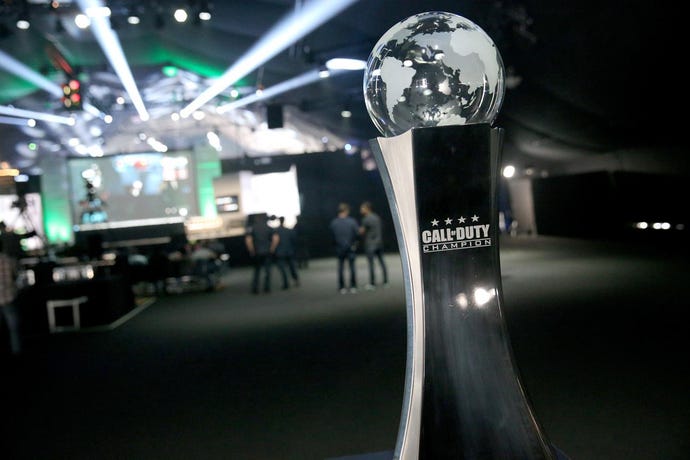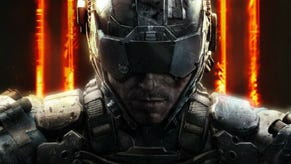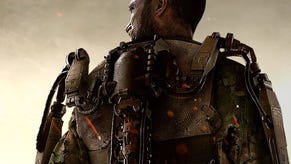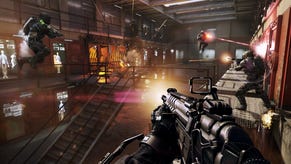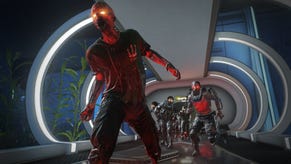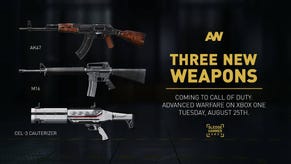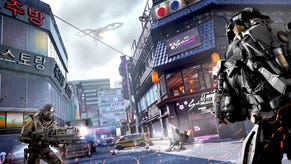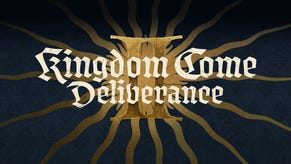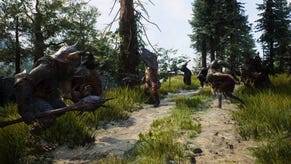How eSports changed Call of Duty
Betting on eSports for Call of Duty: Advanced Warfare has reinvigorated the biggest game on consoles and turned it into a spectator sport.
"We were looking at the eSports scene blowing up. Every year it was getting bigger. Players were maturing and being more discriminating. We had to understand the impact that eSports is having on video game culture."
"We never expected it to blow up this big. People are playing at the highest level."
Mike Mejia, producer on Sledgehammer's Call of Duty: Advanced Warfare, is pumped. The whole Sledgehammer team is on a high this weekend. Activision has built a three day custom eSports event around its game in downtown L.A., crammed it full of hundreds of fans and is broadcasting it to thousands more.
For Sledgehammer it's the end of a three year road. Advanced Warfare has been live for five months now, and this event is the culmination of all the work - a process that began with the intention of significantly changing the Call of Duty franchise, Activision's huge yearly cash cow.
But how do you invigorate a 12 year-old franchise without alienating fans and harming sales? When Sledgehammer first revealed Advanced Warfare it pushed three oft-repeated pillars - single-player storyline, exo abilities and a fresh take on multiplayer. While Kevin Spacey's presence ensured the game would get coverage in the mainstream media, his weird-eyed avatar was really just marketing. The exo abilities brought a lot of game changers to play, but really they were there to fuel trajectory to a different goal - turning the game into a dedicated eSport on consoles.
"We were looking at the eSports scene blowing up. Every year it was getting bigger and bigger, and the players were maturing and being more discriminating," says Mejia.
"We had to understand the impact that eSports is having on video game culture. It's huge to the games industry," adds Mejia.
Call of Duty needed to get in on the action to stay relevant and keep the franchise fresh, but Sledgehammer wanted to put something into the scene itself, rather than just taking on a few extra eSports features and bolting them on to the regular Call of Duty experience.
"We can't forget about the viewer. We can't forget about the player. We can't forget about the gamers. If we look after them we're going to get bigger. And I don't mean just us, I mean everyone," says Mejia.
"You swing so hard for the fences with some of these ideas that if you miss you could really alienate parts of the game and the people who really enjoy Call of Duty."
It's easy to dismiss games with annual updates as a publisher selling the same game over and over again, but the changes Advanced Warfare brought to Call of Duty have been significant.
"It was intentional coming out of Modern Warfare 3 because the fans were asking for new ways to play," says Michael Condrey, Sledgehammer Games co-founder. "At times we may have pushed harder and further than some were comfortable with even within Activision.
"Loot was a big deal. A lot of people didn't know how we could introduce 350 weapons and not lose balance on top of customised scores streaks, new game modes, Pick 13, exo abilities. Lay them all together and you swing so hard for the fences with some of these ideas that if you miss you could really alienate parts of the game and the people who really enjoy Call of Duty."
The studio stuck close to the fans and drafted in professional players from the off, but it had to balance the requests of both to keep them all on board. "We didn't want to create something that was 70 percent for one audience and 30 percent for another," says Mejia. "It's got to be competitive and its got to be fun to pick up. If it's not competitive at its heart then you're not going to have a good time."
While the regular multiplayer modes got a significant tweaking, the biggest addition was the all-new Uplink mode, a competitive combination of ball game and gunplay designed from scratch for eSports play.
"We prototyped 40 new modes before we landed on Uplink," reveals Condrey. "It's hard to come up with them. We were a studio that came in with our own deep respect for the franchise but also wanting to apply our take on it. It was the right time to come in fresh and challenge some old ideas. And COD Champs is validation that these things came together in a competitive space."
"We had an early prototype of Uplink and realised 'oh s**t, this is going to change the game'," says Mejia. "We had the time to reassemble it and we knew we had to engage with the players. To talk to them, make them feel like they're a part of it. We brought in the casters, the players, and it was very satisfying. They knew that the game needed to evolve. And that's led to evolving the competition and how they play the game. It's different to the COD Champs of three years ago. "
The designers at Sledgehammer had their own ideas about how Uplink would play, but seeing it in the wild with professional players was an eye opener for the creatives. Pro players play differently to regular Call of Duty players, who play differently to the people who designed the game. Watching those differences and acting on them enabled Sledgehammer to iterate Uplink into a game being played as part of a $1 million competition.
"To see players use the mechanics and how they're nerding the maps - going through the maps inch by inch. Seeing them put that together with the exo movement, it's amazing."
"To see these players use the mechanics and how they're nerding the maps - that's what our pro consultant calls it - going through the maps inch by inch. Seeing them put that together with the exo movement, to know where the spawns are coming from, it's amazing to see," says lead multiplayer designer Greg Reisdorf.
"Fresh eyes always give you a different perspective on how to attack a problem," adds Condrey "They'll do things interesting and new in maps that we've seen over and over again and lost sight of. The eSports community in particular are so fast. They deconstruct maps so quickly. They build team strategies so fast and accurately that we just don't expect."
Uplink was built with co-op play in mind so there are multiple roles to adopt - runner, defender, thrower. But for it to work as an eSport is has to be good fun to watch as well as play. At the Call of Duty Championship it's one of the most well-received modes with the crowds. That combination of ball sport and gunplay leads to some fantastic plays and crowd-pleasing performances.
"We knew at the end of the day that more people are seeing it online through the spectator experience than in person," says Condrey. "We wanted to set it up in a way that you'd be able to pull off some incredible moves. The kind of moves you'd see in the NBA with a superstar blowing someone out. Last minute showboating. "
"Things can change at the very last minute," offers Reisdorf. "The thing with Hardpoint mode is that it can be determined quite a while before the time is over or before you reach a score limit.
"Uplink can change within the last seconds of the match. Uplink and Search and Destroy are two very different modes but they hold a lot of excitement. There's a lot of anticipation that's great for a spectator. Can he make that run, is he going to throw it? There's a lot of interesting things that can happen."
According to Condrey, Uplink nearly didn't make it into competitive games, but perseverance won out.
"The eSports community wasn't sure they wanted it in rotation when it first launched. We knew in our heart of hearts it was the right answer and we held our grounds. We told them 'we want this in rotation, we want you to adopt it and master it'. Now it's some of the most exciting stuff we see out there," he says.
The gamble had paid off. With the exo abilities multiplayer Call of Duty is now much faster, a design decision that has invigorated play.
More importantly Call of Duty as an eSport is now Major League Gaming's most popular game by a considerable distance and not just in the U.S. Fans are sitting down to watch matches in droves. Call of Duty Championship is a focal point for the franchise and a full stop on Advanced Warfare's development process.
"Sometimes I can just turn off and watch the game as a spectator and not as my game," concludes Reisdorf.
Matt Martin attended the Call of Duty Championship as a guest of Activision. Activision paid for accommodation and travel.
